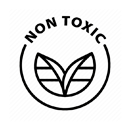Controlling of Rodents:
A mice, rat or rodent infestation can cause much more damage than the destruction of your home, Business, and the diseases they carry can cause major health problems for your family. Below you’ll find some of the most common Damages and issues caused by Mice and Rats.

Rat Prevention
Get Professional Termites Pest Control Help
We offer advice and tips that you can use to prevent the return of rats to your home or business. It is recommended to remove any food and water sources available to rodents from your home. Keep food in locked containers. Remember to put pet food away. Also, pick up any fallen fruit in your garden. Don’t put the rubbish out at night, rather keep it indoors overnight if possible. We will also inspect your home or business for entry points where you can fit mesh over to prevent rats from getting inside. By proofing your home, it will make it less appealing for rodents to want to enter.
The three types of treatment we undergo are:

Low Toxic:

Non Toxic:

Acute Toxic:
Our Services
Contact
-
+91-9866990067
+91-9441027666 - info@xpertspestcontrol.com
Quick Enquiry
Problems due to Rodent (Rats and Mice) infestation:
Damages to Property, and Business
- Rats and mice can cause structural damage to homes, apartments, offices, and virtually any type of building through gnawing, nest-building, and defecation
- Mice will chew on just about anything that they see as useful in building their nests. This could be wood, paper, cloth, books, etc.
- A mouse will gnaw and burrow into upholstered furniture or seats of cars to create a hidden, snug nest.
- Insulation is not safe from mice either. They will tunnel into insulation inside walls and attics, either to make a home or to gather soft materials for their nests.
- Mice also will chew on the insulation around wires. This has been known to cause a real threat of fire.
- Mice will even build their nests in large electrical appliances, again chewing on or through insulation and wiring, which can cause the appliance to short circuit, malfunction, or lead to the risk of fire.
- The mice have no respect for any item, they will gnaw on and into just about any chewable item that is stored in the attic, basement, garage or closet, including irreplaceable family heirlooms, valuable paintings, and important documents.
- The more hidden away and undisturbed an item or area is, the more likely a mouse or ratis to see it as a comfortable, secure home.
- When that mouse travels around your home seeking nesting materials, food, and water, it will leave behind urine trails and fecal droppings. Not only do these contaminate the surfaces and foods on which they land and cause the potential spread of disease, but they also leave a scent trail for other mice—letting them know this is a great place to live.
Damage to Foods and Crops
- Mice are not very fickle when it comes to food, they will feed on a vast array of stored food items or pet foods.
- If a food item comes in a cardboard box or paper wrapping—it’s a double bonus for the mouse. The packaging can be used for nesting and the food inside for eating.
- While they are in the pantry or cupboard, the mouse also will contaminate food with their urine, droppings, and hair.
- Although it eats only about three grams of food per day, it is estimated that a mouse contaminatesand destroys 10 times more food than it eats as it leaves its droppings, nibbles on packages, and leaves numerous partially eaten foods behind, leaving all of it inedible and unfit for humans or pets.
- Even without food being inside, a mouse will gnaw on plastic containers and wooden items, and shred stored paper—paper towels, napkins, etc.—for their nests.
- Outside, mice and rats can damage the structure of your home in their attempts to get inside. Mice need a hole the size of a dime to squeeze into your home. But if a hole is found, and it’s not quite big enough, it will chew on the structure until it is.
- Mice also can dig up and feed on newly planted crops in gardens, cause damage before harvest, and burrow into other areas on the property for food and nesting.
Diseases directly transmitted by rodents
Worldwide, rats and mice spread over 35 diseases. These diseases can be spread to humans directly, through handling of rodents, through contact with rodent feces, urine, or saliva, or through rodent bites. Diseases carried by rodents can also be spread to humans indirectly, through ticks, mites or fleas that have fed on an infected rodent.
Some of the common diseases caused by Rodents are:
- Hantavirus Pulmonary Syndrome
- Lass Fever
- Leptospirosis
- Lymphocytic Chorio-meningitis (LCM)
- Omsk Hemorrhagic Fever
- Plague
- Rat-Bite Fever
- Tularaemia
- Salmonellosis
- Weil's Disease
- Airborne Mouse Allergen
Signs of Rodent infestation:
- You see Rodent Droppings
- You see Gnaw Chew Marks
- There is a Foul Odour
- There are Tracks and Runways
- You find Nests
- Odd pet Behaviour
- Frequent Allergies
- Scampering, gnawing noises and scratching could all be signs
- Burrows - In gardens
- Damage to plants and crops
- Ripped food packaging
Rodent Control FAQ's
The first pest control service in the country by keeping abreast of the latest developments and use only those chemicals which are approved by WHOPES and EPA.
